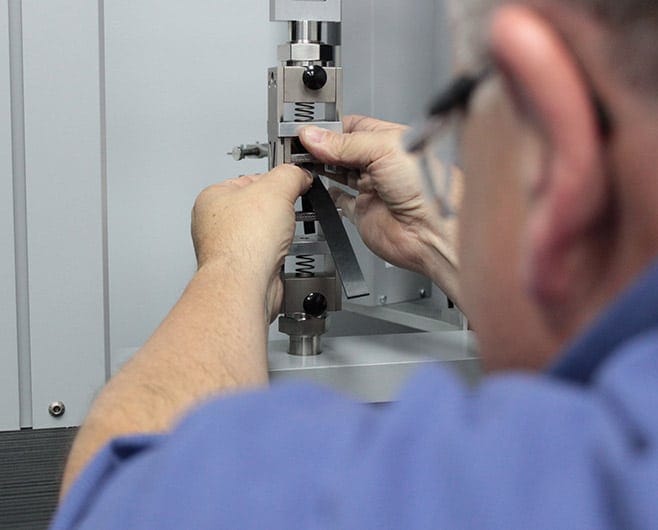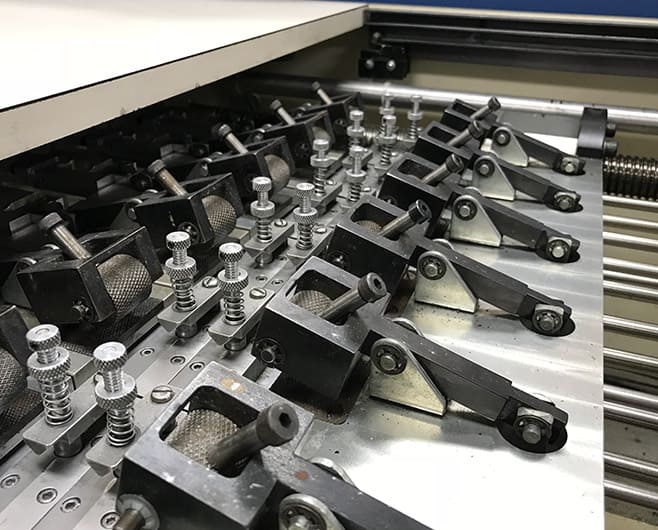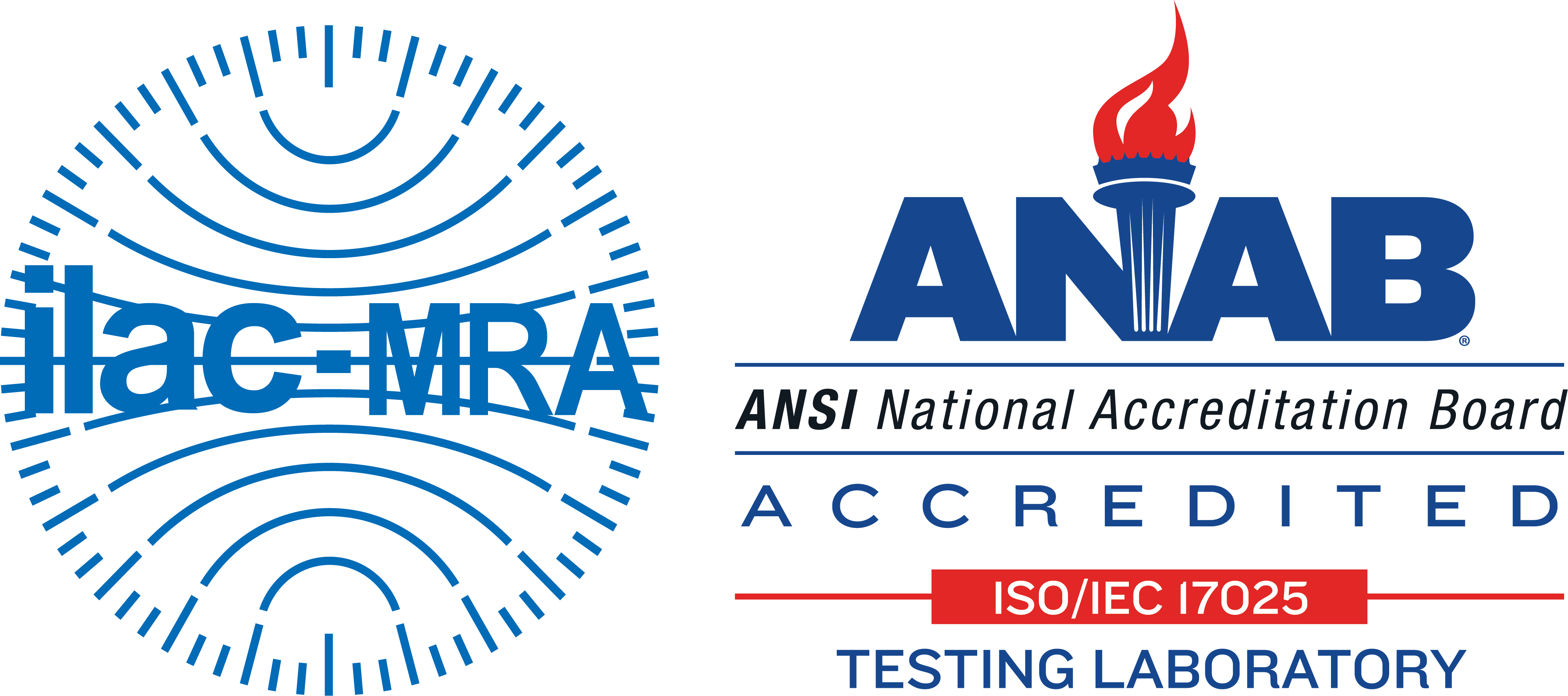Because tensile testing reveals so much about final product performance, it has an incredibly wide range of applications across industries and product types. The automotive, aerospace, medical, and construction industries utilize tensile testing to optimize material performance for its designated service environment. Specific product examples include tires, footballs, rubber bands, o-rings, and more.
For example, seals, gaskets, and other commercial rubber products expand and contract in normal service. These products must return to their original size and shape after being stretched in order to function as designed in the specific application. This is determined by the material’s tensile set properties.
Tensile testing may also be conducted at multiple temperatures, determined by the material’s intended service environment, to predict how its performance may be affected by changing conditions. This is especially important for materials destined for environments that experience dramatic temperature swings, such as the engine compartment of a car.
Tensile testing can also be performed on unaged and aged samples of an identical product, such as a tire, to determine whether aging affected the tensile strength and elongation properties of the material. Benchmarking the results can help manufacturers predict the maximum service life of a product.
Rubber Tensile Testing Process
The rubber and plastic industries rely on two different test specifications to evaluate the tensile properties of materials: ASTM D412 and ASTM D638.
ASTM D412: Standard Test Methods for Vulcanized Rubber and Thermoplastic Elastomers—Tension
ASTM D412 is a tensile testing specification designed for vulcanized rubber and thermoplastic elastomers. ASTM D412 evaluates many types of tensile properties, including:
- Tensile set, or the degree of retraction a test sample can achieve after being stretched.
- Tensile stress at a given elongation, or a measurement of the stress required to achieve a specific elongation of the tensile testing specimen.
- Tensile strength, or the maximum tensile stress that can be used to stretch a test sample before it ruptures.
- Ultimate elongation, or the maximum elongation the test sample can reach under constant tensile stress before it ruptures.
Depending on the specific test method, the material under test is cut into a dumbbell, colloquially called a “dogbone,” a straight section, or a ring. These tests can also be conducted in controlled temperature chambers, allowing manufacturers to evaluate how these properties change depending on the climate.
ASTM D412 is highly specific about specimen alignment and grip strength when testing, since these variables can affect the testing data. The specification outlines several options for grip types that may be used during the tensile testing process.
ASTM D412 is perhaps most commonly performed using a universal testing machine, a type of tensile testing equipment. However, this specification is also compatible with an automated tensile tester, such as the CubeOne from LabsCubed. Because of its unique design, the CubeOne may deliver more consistent test data and results. Other tensile testing equipment, such as an extensometer, can also be used, especially for determining modulus of elasticity.
ASTM D638: Standard Test Method for Tensile Properties of Plastics
ASTM D638 is a common test specification for evaluating the tensile properties of plastic materials, both reinforced and non-reinforced. Like ASTM D412, ASTM D638 measures many different tensile properties, including tensile strength, tensile modulus, elongation, and Poisson’s Ratio.
There are some limitations to ASTM D638. For example, for materials less than 1mm thick, ASTM D882 is the superior choice.
Very similar to ASTM D638 is ISO 517-2: Plastics — Determination of tensile properties — Part 2: Test conditions for molding and extrusion plastics. ISO 517-2 is commonly used in Europe and Asia.
Rubber Tensile Testing Services From ACE Labs
ACE Laboratories is proud to offer tensile testing services for a wide range of rubber products and materials. Our tensile testing lab is equipped with a full suite of tensile testing equipment, including universal testing machines, automated tensile testers, and extensometers, as well as environmental conditioning chambers for assessing tensile properties in a temperature-controlled environment.
Our highly experienced sample prep team has mastered a wide range of sample prep techniques to maximize the value and capabilities of our tensile testing services. Our experts can excise samples from fresh materials, new products, and aged products that have seen service, so you can evaluate new products and benchmark legacy products as needed.
Our rubber tensile testing team can also advise you on other physical properties testing methods that support your goals or objectives. Our experts have years of experience in both industry and laboratory settings and can leverage that expertise to help you get the data you need to make confident decisions.
To learn more about tensile testing services from ACE, talk to one of our experts >



